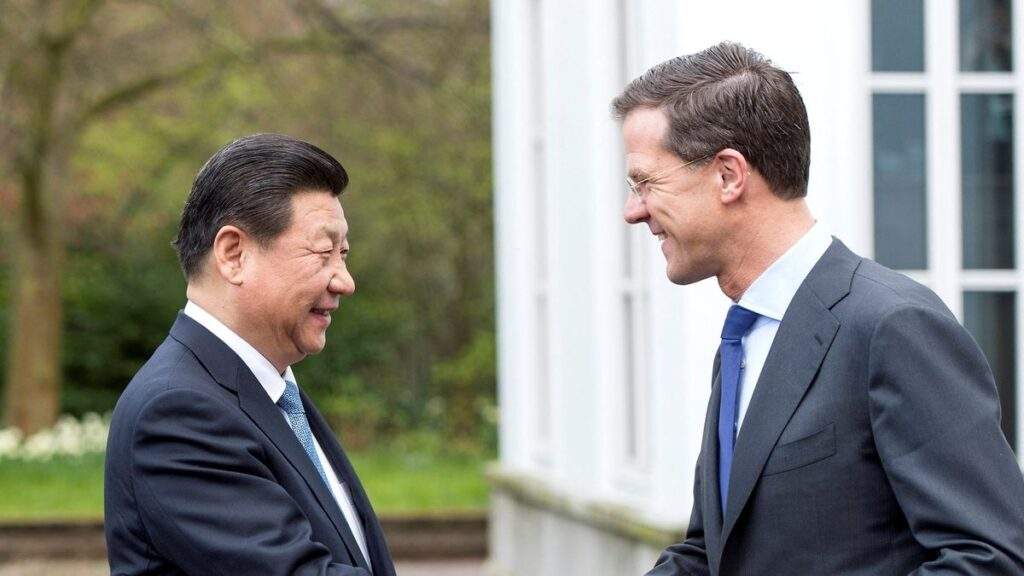In a significant development in the realm of international trade and technology, Dutch Prime Minister Mark Rutte is gearing up for a crucial meeting with Chinese President Xi Jinping in Beijing. This meeting holds immense importance as the Netherlands’ recent policy shift regarding chip exports to China has raised concerns about the future of their bilateral relationship, with economic implications taking center stage.
The heart of Rutte’s visit to China lies in striking a delicate balance between safeguarding national security interests and promoting economic growth. The Netherlands, home to ASML – a global leader in providing photolithography equipment for chip manufacturing, has recently imposed stricter export controls. This decision, influenced by pressures from the United States, restricts China’s access to cutting-edge chip-making technologies, underscoring the intensity of the global chip war. The discussions in Beijing are expected to explore the possibility of granting ASML licenses for servicing equipment previously sold to Chinese companies, highlighting the broader U.S.-China technological rivalry that impacts global supply chains.
Both nations have much at stake in these negotiations. For the Netherlands, the challenge lies in balancing international security concerns with protecting its economic interests, particularly those tied to ASML, a key player in the semiconductor industry. On the other hand, China faces potential setbacks in its chip manufacturing capabilities, crucial for its technological and economic aspirations. The outcome of these talks could signal shifts in global tech alliances and supply chain dynamics, with implications for stakeholders worldwide.
The repercussions of these discussions extend beyond immediate economic interests, touching on the fundamental aspects of international trust and cooperation. A perception of the Netherlands as an unreliable trade partner could prompt China to explore alternative options, potentially reshaping the landscape of global semiconductor manufacturing. Against the backdrop of broader geopolitical tensions, the dialogue between Rutte and Xi serves as a focal point for observers assessing the future trajectory of China-Netherlands relations and, by extension, the global balance of technological power.
As the meeting unfolds, the international community remains vigilant. The decisions taken and the tone set by both leaders could either escalate tensions or pave the way for a more nuanced understanding, shaping the course of future interactions in the high-stakes arena of global technology and trade.
